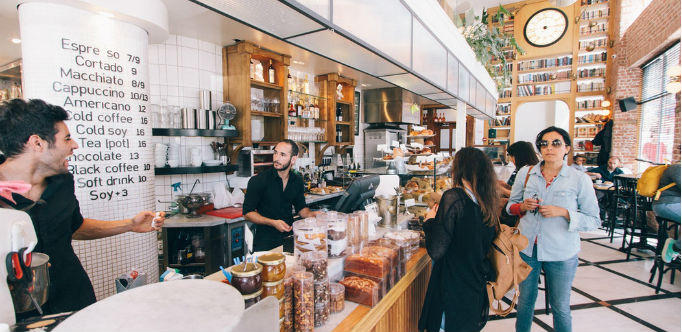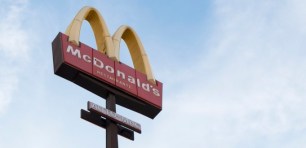
Key moments at the end of a customer's experience can shape how they remember it later on.
If 2021 was the year of customer empowerment, then 2022 will see that power grow exponentially. Characterised by accelerated e-commerce, the last two years saw an explosion in food delivery apps and the maturity of ‘digital self-service’ sending already high customer expectations into the stratosphere.
According to Forbes, 89% of companies compete primarily based on customer experience (CX) — up from just 36% in 2010. Meanwhile, PwC has advised forgetting undercutting competitors’ prices, as providing a superior customer experience is swiftly becoming the priority for brands attempting to differentiate themselves from their competition.
It’s easy to see how marketers worked themselves up into an experience frenzy. Marketing trend pieces hype up the belief that customers have moved beyond collecting ‘things’ and are instead collecting ‘experiences’; experiences that are fun, different, valuable, even ‘priceless’. It appears these experiences are the envy of our friends, and perhaps even more importantly, the envy of our followers.
So, brands clamour to hire experience managers to manage experience designers to help our experiential brands thrive in this experience economy. Then comes commissioning customer journey maps and service blueprints to help us identify, articulate and preempt every step and touchpoint. Then, we set projects in motion to methodically elevate the entire experience, one pain point at a time.
While this may feel like it’s the right thing to do, it’s a complete waste of time.
Memory matters
According to the behavioural economics heuristic, the ‘Peak End Rule’, while we think we want experiences, what we want is memories of those experiences. The memory of an occasion is far more important than the experience itself. It’s the memory, not the experience, that drives our likelihood to talk about, repeat or recommend whatever it is we’ve just done.
The experience and the memory are profoundly different but inextricably linked. We have our ‘experiencing’ self that goes to the concert, sits in a meeting, makes an insurance claim or checks into the hotel. Then there is our ‘remembering’ self, which takes a small slice of each of these experiences and carries them off into the future.
Nobel Prize-winning psychologist and economist Daniel Kahneman has spent large portions of his illustrious career exploring the relationship between these two selves. He designed numerous experiments that helped identify and understand the interactions between the two.
Kahneman observed that our memories are shaped by the peak moments of an experience (i.e. the most intense highs or lows) and the ending, rather than the average of how we felt throughout it. This Peak End Rule is why a horrific flight home can ruin an otherwise perfect holiday; why an amazing dessert can save an otherwise terrible meal; or why every band on earth plays their greatest hit in the final encore.
Think back to the last time you visited a theme park. Is your memory fixated on the 90% of the time you spent interminably waiting in line, the 7% of the time you spent queuing for and then eating a $16 hotdog, or the remaining 3% that was filled with the thrill-seeking rides you were there for?
If we remembered the ‘average experience’ of visiting a theme park, nobody would ever visit one again! The same goes for running marathons, having children and attending most marketing conferences.
The reason for this is that our brains slice out the parts of our experiences considered boring and inconsequential while holding on to memories that will be useful for future decisions, happy moments that are worth repeating, and painful ones to avoid at all cost.
Creating memorable peaks
While it’s admirable to pursue outstanding end-to-end customer experiences, it’s the memories — not experiences — we should be aiming for. Therefore, brands would be far better served thinking about creating one or two highly significant ‘peaks’, especially towards the end of the experience, while ensuring that there’s nothing along the way that’s downright diabolical.
New York-based Lemonade has become one of the most disruptive, fastest-growing businesses to enter the US insurance industry, in no small part due to its focus on dominating one or two moments that matter. With the help of behavioural economics professor and board member Dan Ariely, the business identified an easy signup process and speedy payments on claims as the two places to channel their limited energy and startup funds.
The startup developed two world-class chatbots that completely shatter category norms in the moments most charged with emotion. Maya, the signup bot, allows the average new Lemonade customer to sign up in around a minute, while Jim the claims bot routinely pays out claims in under three seconds. These peak moments helped Lemonade grow to over 1 million active customers by the end of 2020.
On the flip side, there are many examples of how negative peaks and undercooked endings leave us with negative undercooked memories, including the vast majority of the car rental services.
Consider that after a wonderful holiday spent driving around the countryside in a roomy, rented SUV, you then spend the last 10 stress-filled minutes trying not to pay $4.25 a litre for petrol while weighing up the cost-benefit of missing your flight versus filling up the tank? All of this is happening simultaneously as you’re trying to find the correct drop off bay, navigate the airport traffic and pray no minor scratches have appeared since you last checked the car.
Understanding the Peak End Rule allows brands to deliberate about how customers will answer the question: ‘How was your experience?’
What is the one thing that consumers will remember? Instead of spreading your efforts thinly across the entire customer journey, you should be looking for one or two opportunities, preferably towards the end, that you can make 15s out of 10. It will make far more of an impact than endlessly slaving away to bring the entire journey up to a seamless but entirely forgettable nine out of 10 across the board.
Handpicked for you

CX versus UX: What’s the difference, and why does it matter?



COMMENTS
SmartCompany is committed to hosting lively discussions. Help us keep the conversation useful, interesting and welcoming. We aim to publish comments quickly in the interest of promoting robust conversation, but we’re a small team and we deploy filters to protect against legal risk. Occasionally your comment may be held up while it is being reviewed, but we’re working as fast as we can to keep the conversation rolling.
The SmartCompany comment section is members-only content. Please subscribe to leave a comment.
The SmartCompany comment section is members-only content. Please login to leave a comment.